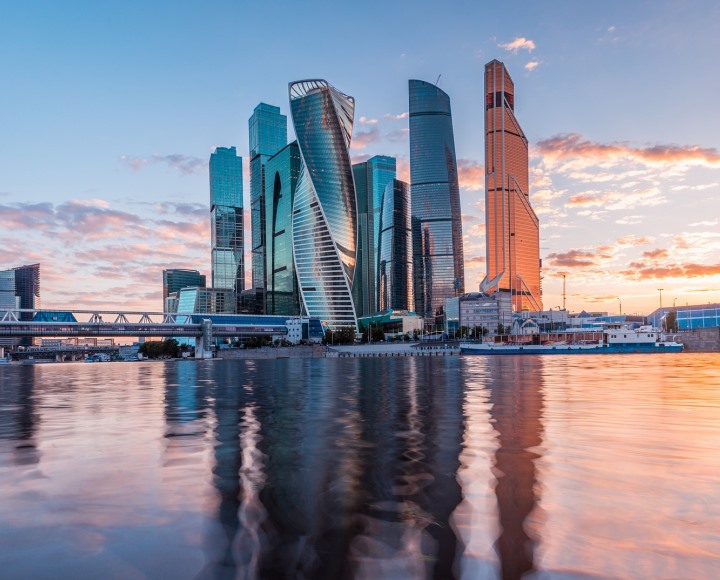In August 2018, the State Duma of the Russian Federation adopted a package of laws designed to create “offshore” zones on Russian territory. Under these laws, special administrative regions (hereinafter SAR) were created in Kaliningrad (Oktyabrsky Island) and in Vladivostok (Russky Island) with beneficial tax treatment. The main purpose for creating SARs is to redomicile foreign companies to Russia and attract investments to Russia. Changes in legislation in respect of corporate income tax will come into force on 1 January 2019. Other changes have been in force since 3 August 2018.
Registration requirements
A foreign company can register in a SAR and enjoy the proposed tax benefits if it complies with the following criteria:
- The foreign company’s incorporation date is before 1 January 2018;
- The controlling persons of such company assumed their positions before 1 January 2017;
- The incorporation jurisdiction is a country that is a member of the Financial Action Task Force on Money Laundering (FATF) or the Committee of Experts on the Evaluation of Anti-Money Laundering Measures and the Financing of Terrorism (MONEYVAL);
- Real business activity is transacted in several countries including Russia through a branch or subsidiary company;
- The company should be ready to invest at least RUB 50 million (roughly EUR 650,000) in the Russian economy within six months of registration in Russia.
Registration procedure for future SAR residents
To be registered in a SAR, a foreign company should submit their application to the management company of the corresponding SAR, documents confirming the company’s compliance with the requirements established by law, as well as other documents required by law.
The management company of the Russky SAR is the Far East Development Corporation. Currently there is no management company for the SAR in the Kaliningrad region, but its main functions are handled by the Ministry of Economic Development of the Russian Federation.
The following documents should be submitted to the tax authorities at the place of registration within 15 working days of the registration by the management company:
- financial statements for the previous year
- positive audit report
- information on controlling persons
Information about controlling persons
The information on controlling persons that should be submitted to the tax authorities in the case of foreign controlling persons is as follows:
- full name of company / individual
- registration number in place of incorporation / domicile
- tax identification number in place of incorporation / domicile, or similar number
- address in place of incorporation / domicile
- share in international company
- disclosure of indirect ownership
For Russian controlling persons, the list is the following:
- full name of company or individual
- Basic State Registration Number (OGRN) (only for legal entities)
- taxpayer identification number (INN) and tax reason code (KPP) (only for legal entities)
- share in international company
- disclosure of indirect ownership
The following individuals should be recognised as controlling persons of international companies:
- Legal entities or individuals whose share in the company is at least 15% (share of an individual includes shares of their spouses and minor children);
- A legal entity or an individual could be considered controlling persons regardless of their share in the international company if they can influence decisions of such companies for their own benefit or for the benefit of their spouses and minor children;
- Foreign companies registered in a Russian SAR will receive special status as an “international holding company” (hereinafter IHC).
Tax benefits for SAR residents, which come into force on 1 January 2019
Dividends received by an IHC are subject to corporate income tax at a rate of 0%. An IHC should own at least 15% of the shares in the divided-paying company for one year or more to receive such benefits.
Dividends that IHCs pay to foreign individuals and legal entities until 1 January 2029 are subject to withholding tax at a rate of 5%. IHCs should be recognised by the Russian tax authorities as public companies to receive such benefit. A company should be recognised as a public company if its shares are listed and/or are permitted for trading in one or more licensed stock exchanges in Russia, or stock exchanges that are included in the list of foreign financial brokers. The list of foreign financial brokers is provided in Direction № 4393-U of the Russian Central Bank dated 30 May 2017.
An IHC’s gains from the disposal of shares in foreign and Russian companies are subject to tax at a rate of 5% if the following conditions are met:
- Shares were owned by the IHC for 365 days and amount to at least 15%;
- Assets of company shares disposed of directly or indirectly consist of immovable property located in Russia up to no more than 50% on the last day of the expired reporting period;
- Shares were not acquired by the IHC as a result of mergers and acquisitions within 365 calendar days before and after the registration as an international company.
An IHC may not take into account the profit of its controlled companies as part of its CIT tax base for the periods before 1 January 2029.
Currency control
The package of amendments includes some changes to the Russian currency control rules established in Federal Law № 173-FZ dated 10 December 2003. According to the adopted amendments, SAR members are not recognised as residents for Russian currency control purposes. Therefore they have the right to perform currency transactions without any restrictions.
The WTS Russia team could help you identify the possible benefits and opportunities for your business structure from redomiciling an existing holding company to a Russian SAR. WTS Russia could also help you prepare the documents you need to apply for registration in a Russian SAR, and assist with the registration procedure.
RELATED ARTICLES:
The increase of the general VAT rate in Russia from 18% to 20%







